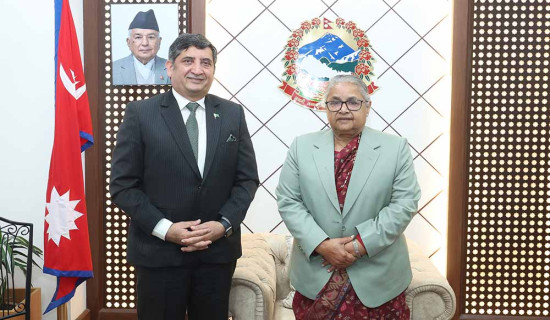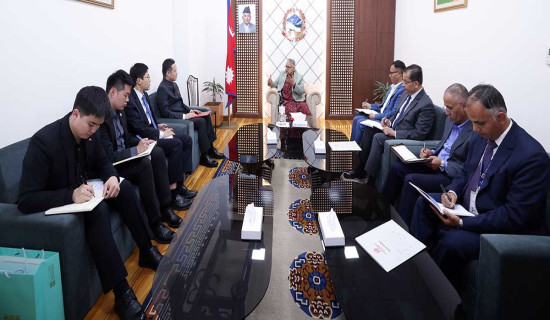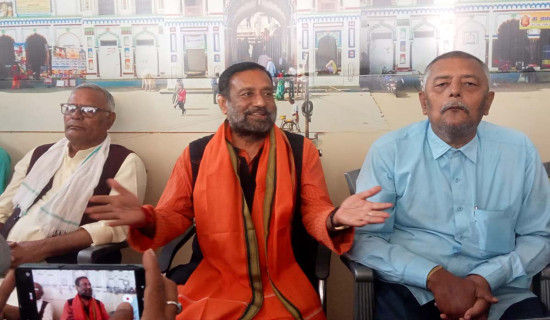- Saturday, 28 February 2026
Enhance Services For Senior Citizens
Nepal is experiencing a big demographic transition. The number of older people is increasing fast. Traditionally, joint family structures in Nepal extend care and support for old people. But modernisation, migration, and new socio-economic dynamics are making dents in family relationships. Providing care to older people requires tackling issues such as accessibility and affordability of health care services, social isolation, financial insecurity, and the need for age-friendly environments. The shift from family-based care to institutional and community-based solutions, therefore, highlights the significance of structured support for seniors.
This is not the case in Nepal alone, as countries in the world are facing the problems of the rapid demographic transition. Between 2015 and 2050, the proportion of the world's population over 60 years is projected to double from 12 per cent to 22 per cent. An ageing population is more or less a passive and dependent population. It increases the demand for health and many other caring services. Though the federal constitution of Nepal intends to establish a welfare state where citizens enjoy state support and benefits of all kinds, taking most of the material burden away from the family, it has not been implemented in the true spirit of the term.
Rights of senior citizens
The Senior Citizen Act guarantees such rights of senior citizens, which include the right to manage their own movable and immovable property, protection from being forced into begging, priority access and concessions in public transport, health care facilities and preferential treatment in court proceedings, free legal representation if needed. The act also includes a mechanism for lodging complaints against negligent family members and assigning duties to District Senior Citizens Welfare Committees to formulate supportive programmes locally.
However, as mentioned above, care and protection of the elderly population have so far been a matter of family obligations. Our tradition requires that as parents are solely responsible for rearing and ensuring an affectionate and healthy upbringing of their children, so should the adult children do in their turn to provide all care and comfort using all resources for their ageing parents. The obligations of the offspring, especially sons, towards their parents have been prescribed in many religious books and scriptures as the patrilineal legatee and successor.
However, situations have changed today. The values and norms that governed the family ties and relationships in the past are no longer valued today. Adult children, in most cases, cannot afford to stay with their parents and take care of them in person. Parents are either abandoned or made to fend for themselves back home as their children tend to migrate overseas for gainful job opportunities. For parents, their old age becomes a kind of physically and emotionally painful experience because their family members are not beside them when they need compassion, care and protection.
Moreover, a very ominous trend that defies our family values has been that the close-knit family relationships that used to characterise the parent-child bonding are going on the wane. In some cases, it is also found that the adult male child tends to neglect and abuse their parents, exert pressure upon them to exact their share of property as a coparcener. When parents age, lifelong family baggage can spill open. Siblings might find themselves in dispute over who carries most of the caregiving burden, or disagree with their parents and each other about which courses of action are best. These types of disputes can arise between siblings, children and parents, and even spouse to spouses. Unresolved conflicts can spring anew during a health crisis, complicating any attempts to understand how the older adult wants (or would want) to proceed.
Identifying how an individual wants to spend their final years and communicating that message to family and friends is an important task. In such a case, support from family mediators would be needed. Siblings with strong and opposing views can benefit from the objective family negotiation and mediation offered by an experienced mediator. A mediator can work on behalf of the whole family. He or she will help the family have constructive conversations about their elderly parent’s needs, create a plan that addresses them.
Mediation
A mediator can work as an objective third party to help resolve some of those conflicts and move the discussion forward. Mediators should have training or experience in both mediation and gerontology to be able to properly assist families dealing with this type of conflict. Mediators are also very effective at facilitating family conversations before a crisis hits. Once decisions have been made and put into writing, families have a tool to use when a crisis hits. That tool can be adjusted as life situations change, and will mitigate the stress and trauma of the crisis.
One of the first steps to setting up successful elder care mediation is to identify all the parties who will be involved. The discussion should focus on what is important to the adult(s), how they have lived their lives and how they picture living their remaining days. Gentle probing into relationship issues between them and children, and between siblings, should be used to help understand family dynamics. Based on these discussions, the elder mediator needs to connect with each person involved and have similar discussions with them, identifying their concerns, conflicts and comfort levels.
Nepal Senior Citizen Act assigns local government, especially judicial committees, to resolve disputes relating to elderly citizens through a kind of elder care mediation service. However, the local capacity to mediate and facilitate the resolution of disputes or issues involving senior citizens is almost non-existent. It is therefore necessary to focus on it.
(The author is presently associated with the Policy Research Institute (PRI) as a senior research fellow. rijalmukti@gmail.com)






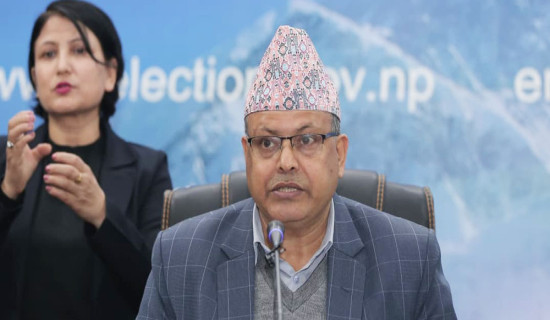
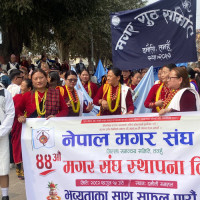
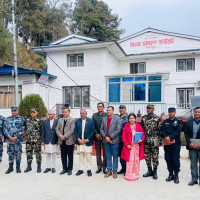

-original-thumb.jpg)

